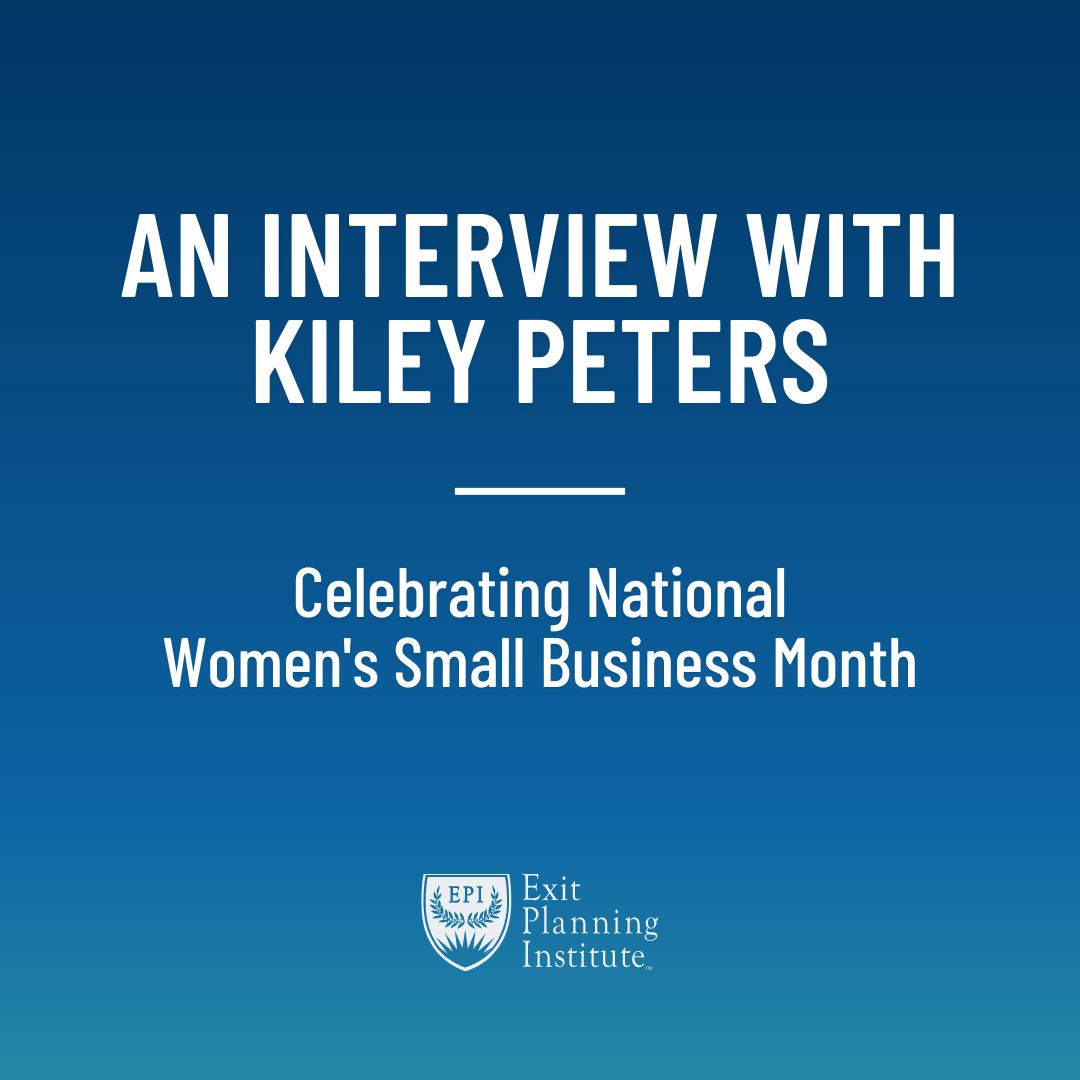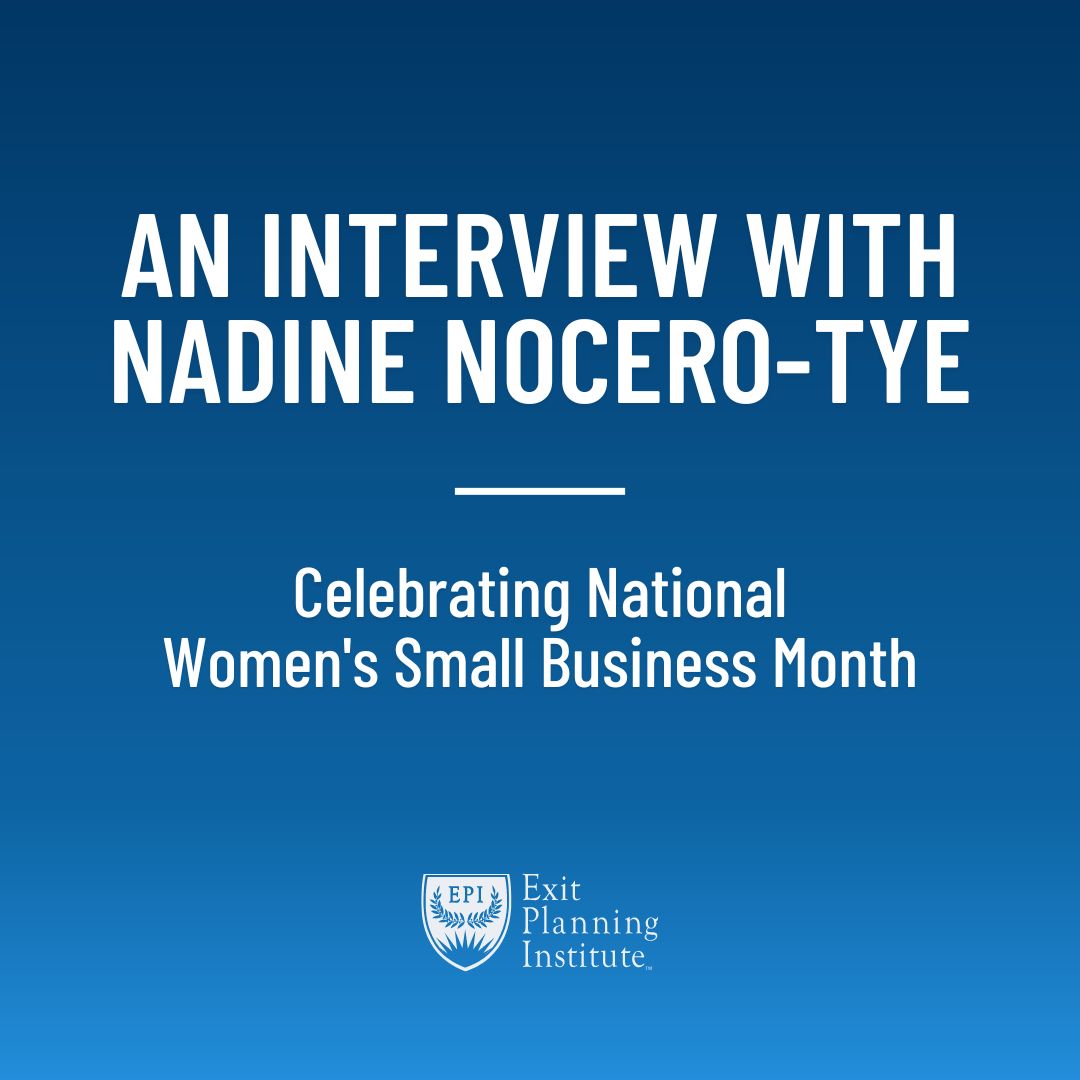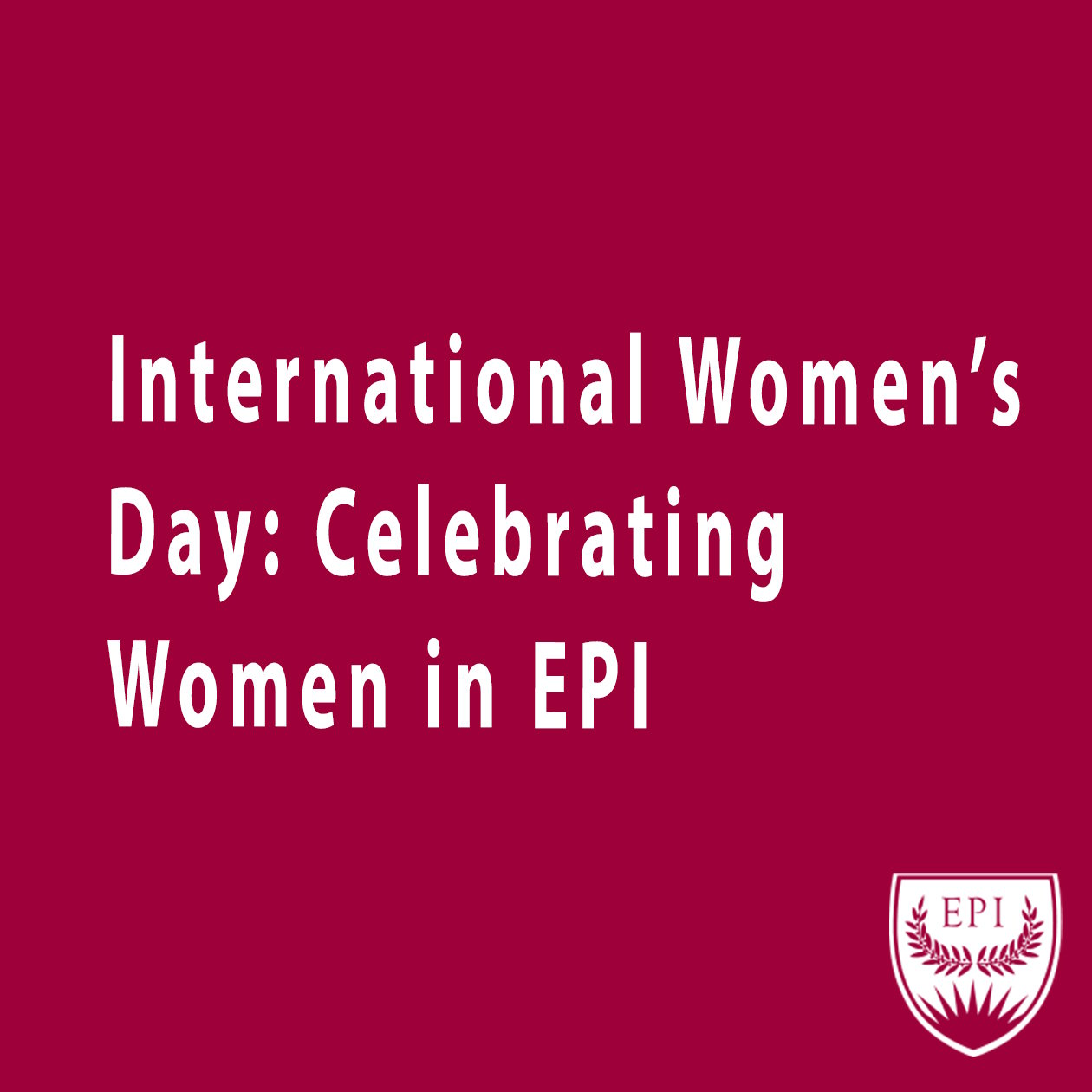
THE EXIT PLANNING BLOG
Keep up-to-date with exit planning, succession planning, industry trends, unique specialty insights, and useful content for professional advisors and business owners.
Share this
National Women’s Small Business Month: An Interview with Michelle Kowalski and Robin Piazza
by Colleen Kowalski on October 20, 2022
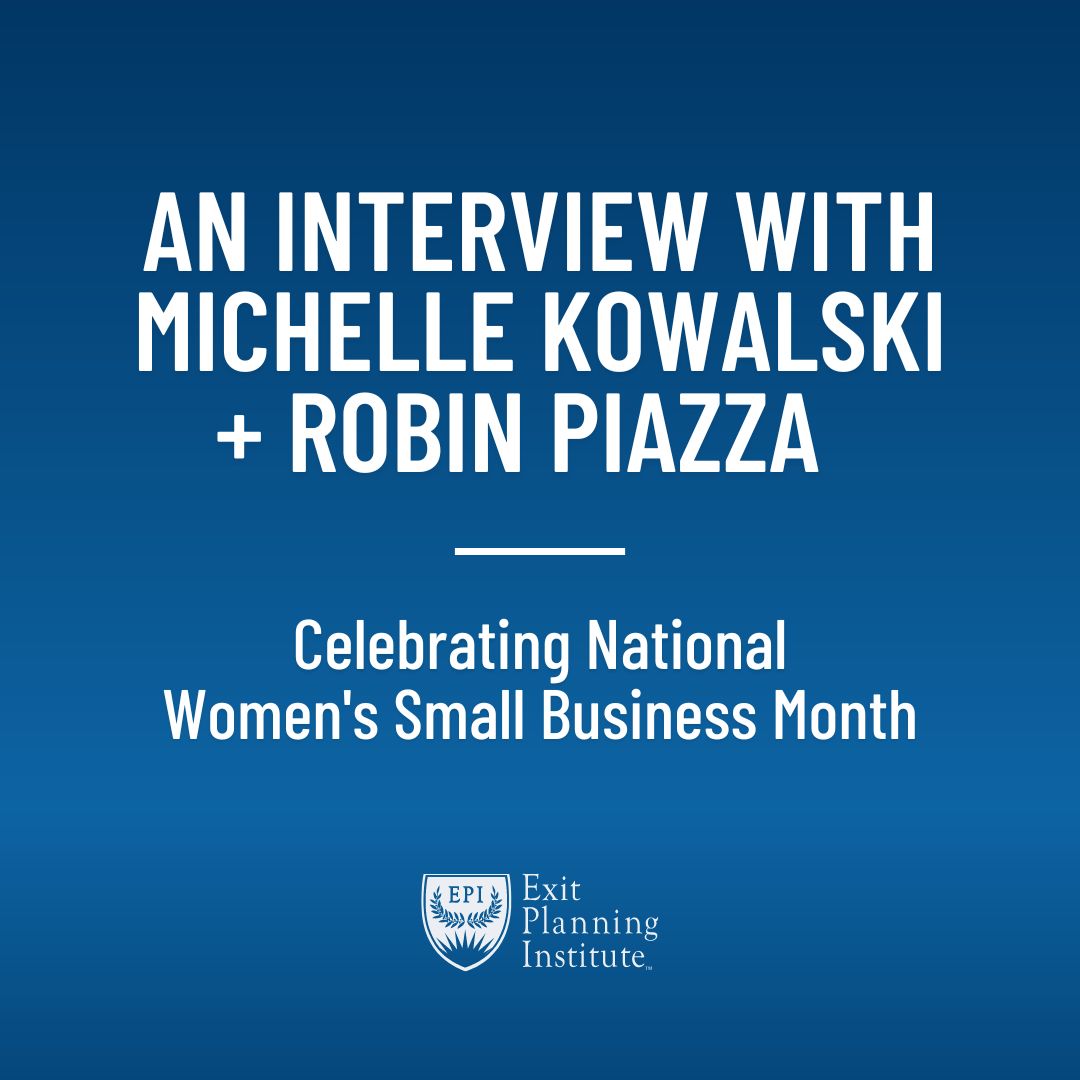
October is National Women’s Small Business Month. Exit Planning Institute partners with many businesses owned and operated by women. To celebrate Women’s Small Business Month, we will be highlighting some of the small businesses and women who work with Exit Planning Institute.
Today, we feature Michelle Kowalski and Robin Piazza. Michelle and Robin are the Co-owners and Lead Designers of Walder Studio, a full-service design firm. Walder Studio manages all the design needs for Exit Planning Institute including the Exit Planning Summit.
Meet Michelle Kowalski and Robin Piazza:
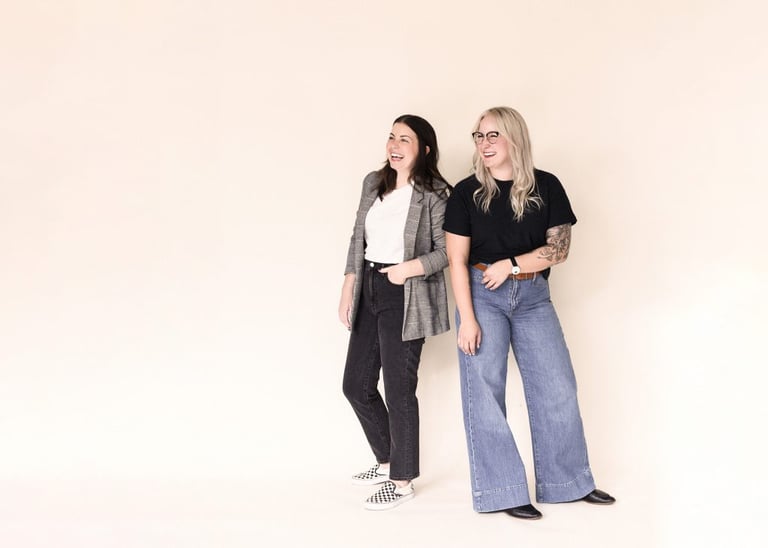
Michelle is a Cleveland native, pet parent, and eccentric aunt. Her design background includes packaging design, branding, and detailed UI/UX design for B2B eCommerce companies. She now focuses on helping nonprofits, community organizations, and businesses of all sizes succeed through thoughtful and effective web experiences. She is equally passionate about artisan cheese, home renovations, and landscaping.
Robin is an Austin transplant and a new mom to baby Ellis. With a design background in branding and signage and wayfinding design, she’s worked with a variety of clients, including the Oregon Zoo, One World Observatory, and the University of California, Berkeley. Outside of work she can often be found scouring local flea markets, hanging out with her dog, Charlie, or trying all of the wines from Trader Joe’s.
Learn a bit more about the Walder Studio Owners below!
Tell us a little bit about your business
At Walder Studio, we specialize in graphic design, branding and strategy, web design, and signage and wayfinding design. We’re based in Austin, Texas and Cleveland, Ohio, but we have clients all over the country and around the world. Our priority, aside from customized design solutions, is to be a friendly and approachable design resource, whether our clients are hiring a designer for the first time or they’ve worked with firms in the past. After spending our early careers exploring different design directions, we’ve been able to bring all of our varied expertise into one place for our clients. We’re proud of the relationships we’ve built with our clients and love that we get to work on projects of all sizes ranging from first-time entrepreneurs to large companies.
We’ve been working with EPI as their design team for the last two years, and we have loved being an extension of their marketing team. The opportunity to bring our specialized offerings to a larger team has been a great experience.
What inspired you both to want to be entrepreneurs?
After spending nearly a decade each in various design roles, we decided to start Walder Studio because we were looking for the flexibility to provide a wider range of services to a more specific set of clients. We wanted more control over the projects we take on as well as more control over our own schedules.
Starting our own design firm allowed us to focus on what we like to help clients achieve, like working through the beginning stages of starting a new business. We really value having a direct connection with our clients and getting to know their organization’s needs and personalities.
We also noticed in our past roles that simply billing as many hours as possible, regardless of the work being done, was rewarded. We wanted the opportunity to work more efficiently for our clients, still providing great design but without the bloated team or price tag.
What exciting opportunities are you seeing in your industry?
During the pandemic, a record number of people started their own businesses. As a result, we’ve had the opportunity to work alongside new founders and help turn their excitement into engaging brands and websites. While we aren’t personally able to help all 4.4 million(!) new businesses, we’re enjoying working with as many as we can to help them tackle their corner of the market.
What are the challenges of being owners of a small business?
We had always dreamed of working for ourselves, but even dream jobs have their challenges. Balancing every role as a small team is ours. The two of us are not just the design team, we’re project managers, accountants, HR, and office managers, too.
On a more existential level, we’re also fighting against hustle culture. Society is constantly asking people to churn out more, more, more, and we’re trying to find the balance of working enough but not too much. The dream is to deliver exceptional design to our clients then log off and have an actual personal life.
Who are your role models?
Growing up, we both watched our moms balance successful careers and full personal lives, which set a great example of what we could achieve ourselves. We were also fortunate enough to work with and for many strong women in our careers prior to starting Walder.
One thing we weren’t anticipating was how much inspiration we would get from our clients. Watching other women start, grow, and lead their businesses has been such a privilege and one that fuels us to want to continue to help new clients.
How have you acted as role models for other women in your business?
As we mentioned, many of our clients are women entrepreneurs, and we love being able to share with them any tips, tricks, or lessons we’ve learned while growing Walder Studio. For example, collaborating with our client Morgen Schroeder, founder of Martha’s Vineyard Cheesery and co-founder of Catboat Coffee Co., helps us all discover new and better ways to run our businesses.
What advice do you have for women looking to start their own businesses?
First, surround yourself with people who are just as excited about your success as you are. People willing to help you achieve your version of success are invaluable to starting your own venture.
Second, set specific goals and use those to make business decisions. While we started Walder Studio in 2019, this was our first year officially setting goals for the company. Those goals were incredibly helpful guideposts for us to reference as we decided which new projects we wanted to take on and, perhaps even more importantly, which projects we needed to turn down.
Our goals aren’t based on maximizing revenue or insane organizational growth, but on personal fulfillment and contentment. Keeping our specific targets (financial milestones, ideal projects, dream clients, preferred workload, etc.) front and center helps us accept projects that align and drive us toward the lives we’ve envisioned for ourselves.
Follow our socials for more exit planning content and strategies.
Share this
- Blog (548)
- CEPA (431)
- exit planning (249)
- CEPA community (188)
- Business Owner (175)
- Exit Planning Summit (99)
- EPI Chapter Network (89)
- Value Acceleration Methodology (81)
- Exit Planning Partner Network (76)
- EPI Announcement (50)
- Content (48)
- Webinars (37)
- Excellence in Exit Planning Awards (34)
- Marketing (30)
- 2024 Exit Planning Summit (28)
- 5 Stages of Value Maturity (26)
- Books (24)
- EPI Academy (24)
- EPI Team (22)
- Exit Planning Teams (22)
- Leadership (21)
- 2023 Exit Planning Summit (20)
- family business (20)
- women in business (19)
- Intangible Capital (18)
- Exit Options (17)
- Black Friday (16)
- CPA (15)
- Walking to Destiny (15)
- Chapters (14)
- State of Owner Readiness (14)
- charitable intent (13)
- Chris Snider (12)
- National Accounts (12)
- Small business (12)
- personal planning (12)
- Financial Advisors (11)
- Season of Deals (9)
- 5 Ds (8)
- About us (8)
- Podcast (8)
- Scott Snider (8)
- Insiders Bash (7)
- Christmas (6)
- Exit Planning Content Library (6)
- Case Studies (5)
- Owner Roundtables (5)
- Three Legs of the Stool (5)
- Value Advisors (5)
- financial planning (5)
- Awards (4)
- Circle of Excellence (4)
- EPI Thought Leadership Council (4)
- Exit & Succession (4)
- Five Ds (4)
- executive training (4)
- DriveValue (3)
- Owners Forum (3)
- author (3)
- forbes (3)
- Exit Is Now Podcast (2)
- Peter Christman (2)
- Veteran (2)
- Whitepapers (2)
- Annual Exit (1)
- Business Owners Forum (1)
- SOOR (1)
- business consultants (1)




